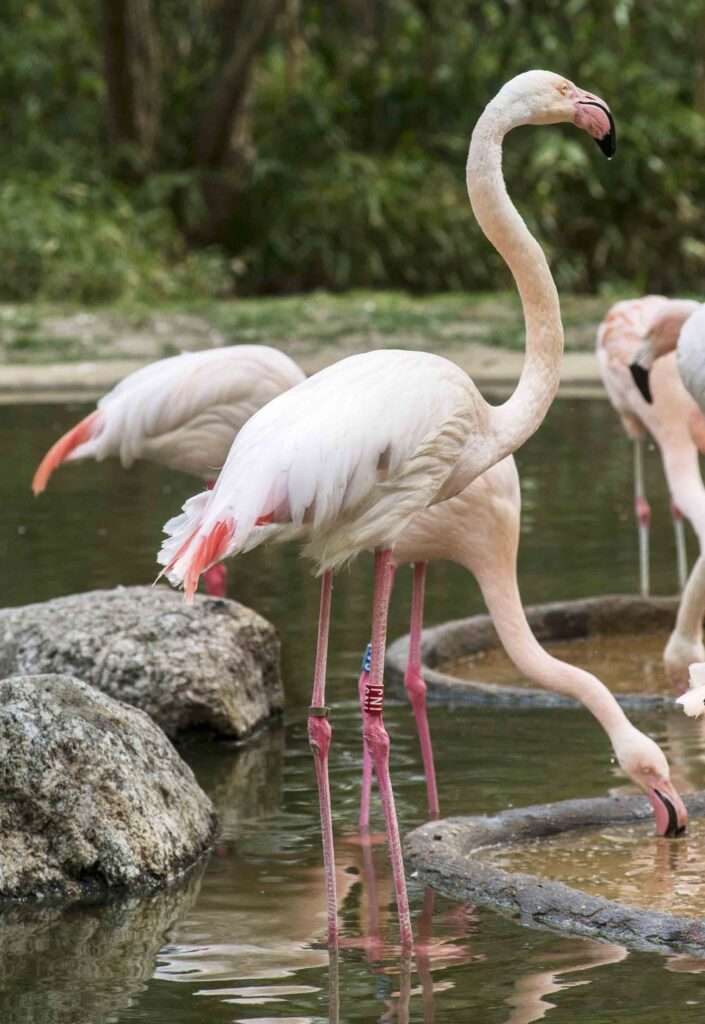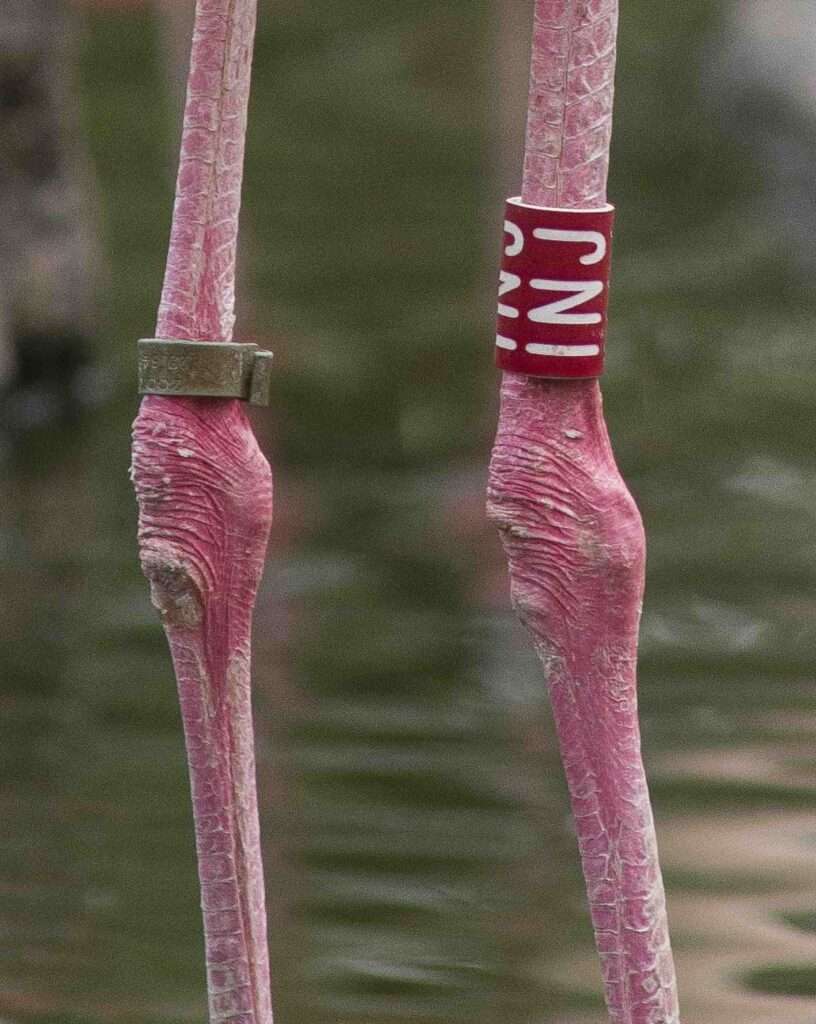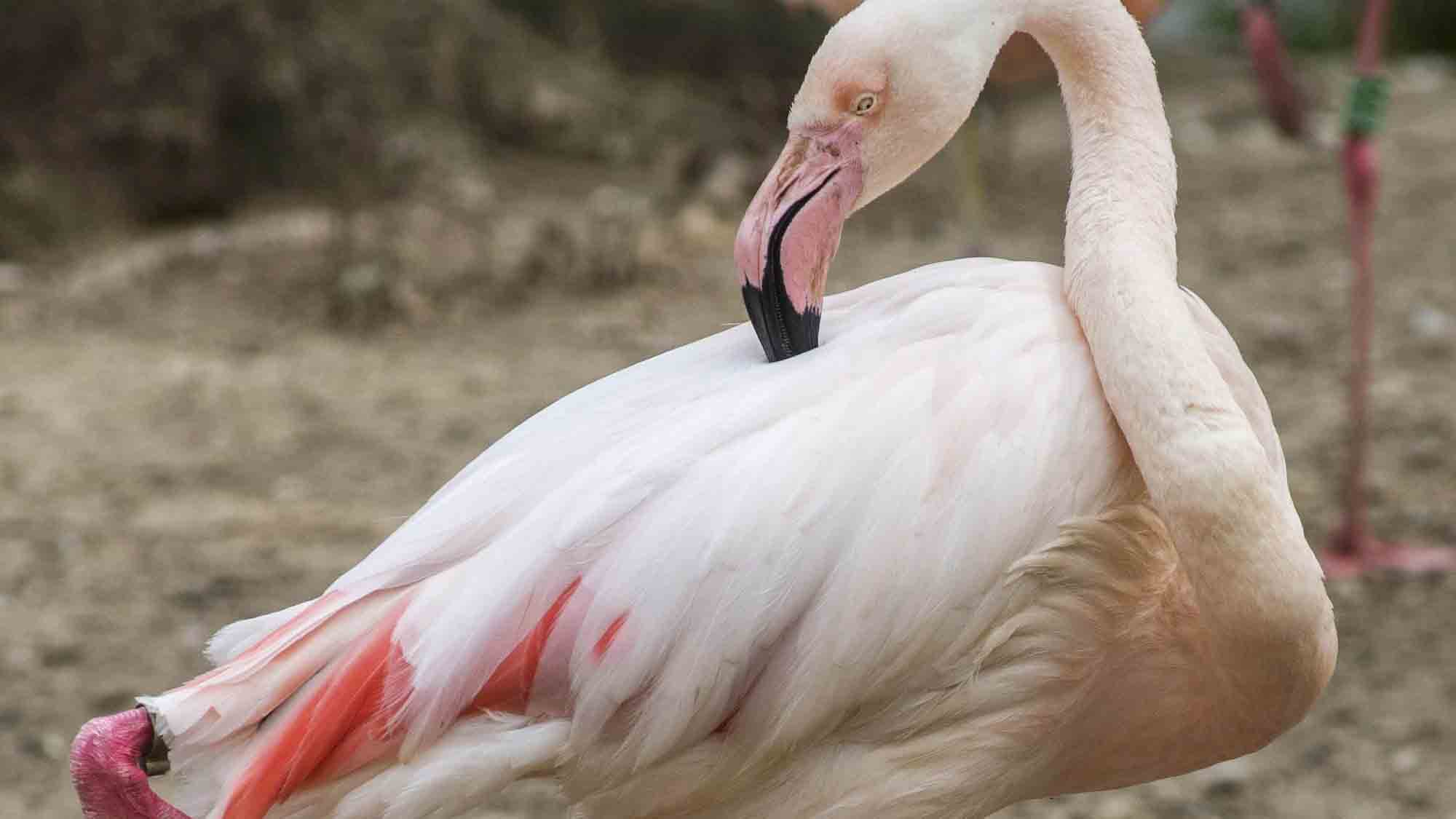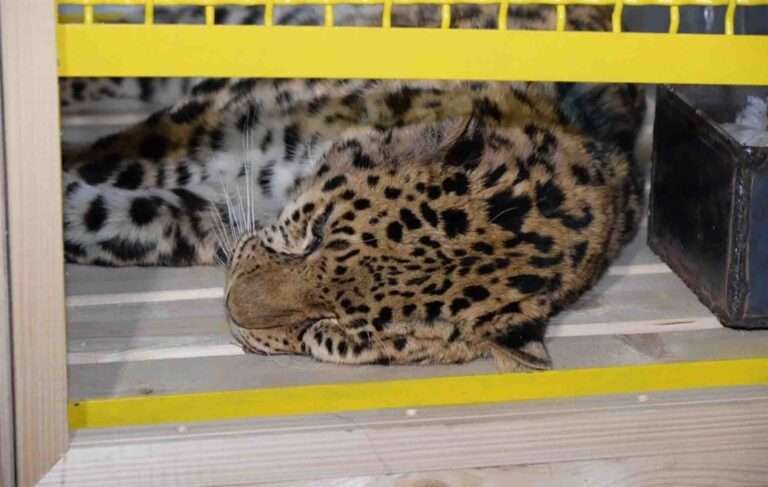A zoo in Germany has announced the death of its oldest resident Ingo the flamingo at the astonishing age of 75.
Ingo’s identity leg ring shows it was first recorded as a chick in Cairo, Egypt, just after World War II on 23rd June 1948.
Now heartbroken keepers at Berlin Zoo have told how Ingo died on 3rd February of old age.
In the wild flamingos normally live to around 30 years old although some exceptional birds are understood to have reached 50.
Ingo first came to Berlin in 1955 when the city was split in two by the communist Soviet regime in the east and a democratic state in the west.
In a statement obtained by Newsflash the zoo said: “At a minimum of 75 years old, he passed away on 3rd February.
“His age can be traced through the ring he wore around his leg. It reads: Cairo, 23.6.1948.”

They added: “This means he received this ring as a young bird, making him at least 75 years old.”
Zoo director Andreas Knieriem explained: “Thanks to excellent care with ‘assisted living,’ Ingo the flamingo has reached the respectable age of 75 with us.
“The average lifespan of wild flamingos is around 30 years. Occasionally, they can reach an age of 50 years in their natural habitat.
“The cause of death, according to the autopsy report, was multiple age-related changes.”
The zoo added: “Despite – or perhaps because of – his advanced age, Ingo survived many adversities and, thanks to good genes, achieved a true record age.
“Ingo Flamingo will have a place in the Natural History Museum – alongside other famous animal personalities such as Gorilla Bobby, Giant Panda Bao Bao, and Polar Bear Knut.”
The zoo’s oldest animal is Gorilla Lady Fatou, who they said is also the oldest gorilla in the world and will turn 67 in April.
They explained: “Elderly animals are a phenomenon that has emerged from the protected care of wildlife in human captivity.
“In their natural habitat, animals typically do not live long enough to suffer from cancer, cataracts, or arthritis.
“Natural selection ensures that sick and elderly animals are weeded out.”

They added: “They become easy prey for predators, are displaced by rivals from the territory, or starve because they can no longer catch prey themselves.
“In scientifically managed zoos, however, animals tend to live in assisted living with full board, the best medical care, and nutritional advice, significantly longer than in the wild according to a study.
“As a result, ageing symptoms in zoo animals are observed that are rarely or never seen in their natural environment.”
The zoo said that there is now a flock of 77 flamingos in their care.
It includes 29 Lesser Flamingos (Phoeniconaias minor), 16 Chilean Flamingos (Phoenicopterus chilensis), 14 American flamingos (Phoenicopterus ruber), 6 James’s Flamingos (Phoenicoparrus jamesi), and 12 Andean Flamingos (Phoenicoparrus andinus).
To find out more about the author, editor or agency that supplied this story – please click below.
Story By: Joseph Golder, Sub-Editor: Joseph Golder, Agency: Newsflash
The Ananova page is created by and dedicated to professional, independent freelance journalists. It is a place for us to showcase our work. When our news is sold to our media partners, we will include the link here.




